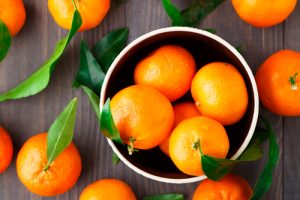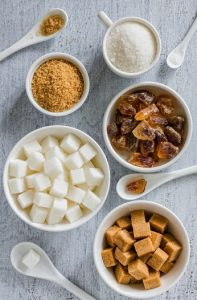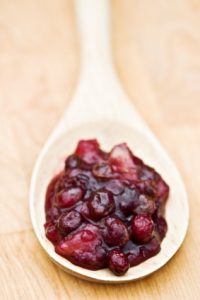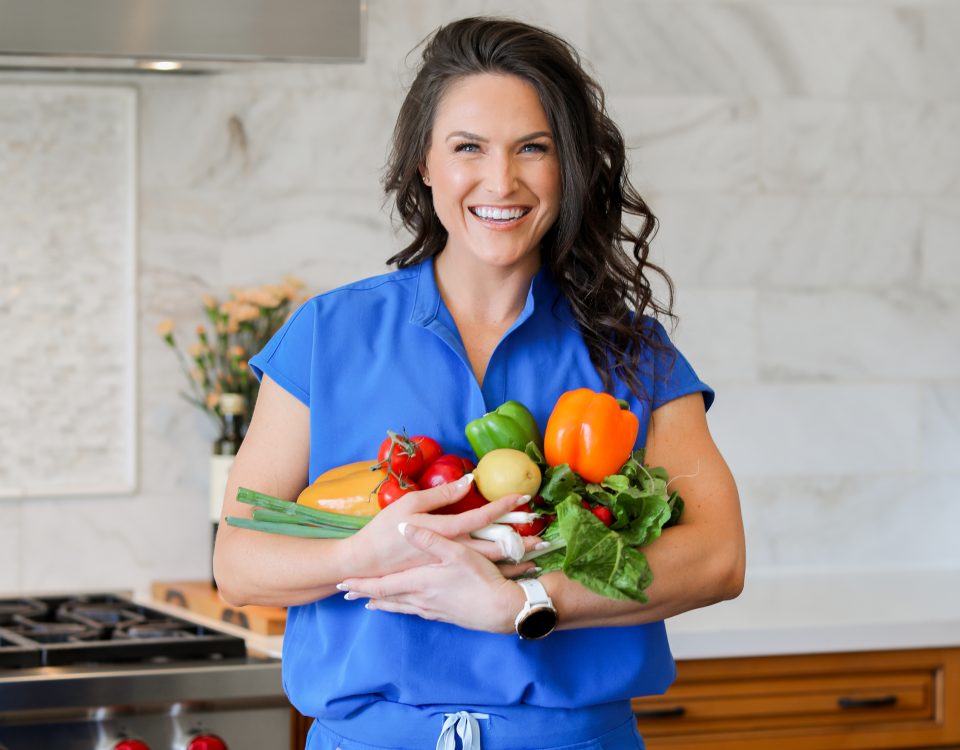Dr. C: Yeah, it would. You could control where the heat is. You could get the right distance from it. It could burn for a long time. It is the exact same way inside of our body in terms of how we burn fuel. Carbs are one of our main sources of fuel and the ones that are like logs are polysaccharides. They are lots of little tiny pieces stuck together. We have to pull them apart very slowly and we burn them very slowly and we get lots of steady fuel from that and our bodies can control that pretty well. Monosaccharides and Disaccharides, the more simple sugars, they burn like gasoline. They burn fast and they hurt us.
For The Monosaccharides, we got Gluctose, Fructose and Galactose. Those are the main three common Monosaccharides in the diet. Out of all of those, it turns out that frutcose may be the most harmful. So Fructose is only metabolized by your liver which means your liver has to work really hard to process Fructose. Where as Gluctose and Galactose can be used more directly by your muscles and other parts of your body. Our livers have a lot to do now a days. Any where we live. Even in a clean room like this, there are things from the carpet and things from the panes. I mean we have got clean carpets and clean panes but there is still things that are volatile organic compounds and there are still solvents and our liver has to process those. We also have to break down all the waste from the air and our normal waste from our body. So if our liver is working on Fructose it has a hard time and it makes it get backed up with a sewer full of sludge. We can not move our blood through it very well and it makes us sick. It makes us sore, tired and cranky. It does all that stuff. Fructose is hard on the liver. So back to Agave Nectar and that plant. It is even higher in Fructose then even plain old table sugar is so it is not better. So now we get to evaporated cain juice.
That is sugar. It is a fancy name for sugar. It is not different. Some of these are rather rare. Apple sugar. Apple syrup. You know fruits are good things. There is really no data saying that simple unprocessed fruits do anything bad but fruit juices, dried fruits, tropical fruits and high amounts can. Somewhere along the way, they are no different than sugar. In fact that little bottle of water we have right there. If that was full of coke and we had one that was full of orange juice do you know which one would have the most sugar?
Dr .C’s Son Ryan: The orange juice.
Dr. C: Yeah. That is wild. Yeah, it would actually have more sugar then the coke would.
Dr C’.s Son Ryan: You should not drink coke anyways.
Dr. C: Yes, and there is also a lot of sugars in fruit juices. So yeah even syrups and fruit juices are good to be aware of. Barley malt, barley malt syrups. Some of the malt syrups. Those are a little lower in Fructose then a lot of the sugars are. There higher in a thing called maltose. So Maltose is a Disaccharide. It is a two molecule sugar. It is two glutcose stuck together, so there is no Fructose. You know sucrose is the main classic table sugar and most types of sugars are really just different names for Sucrose and Sucrose is one Glucose and Fructose so it is still hard on the body.
Another new one is coconut sugar. That sounds pretty healthy huh?
Dr .C’s Son Ryan: It seems like everything is natural sugars from natural foods.
Dr. C: Do you crack a coconut and does sugar fall out?
Dr. C’s Son Ryan: Not all sugar is like the white sugar you find in the bag.
Dr. C: Do you crack a coconut and does sugar fall out? So is coconut sugar natural? It’s pretty concentrated. Its the sweet stuff of coconut taken out and it is also super high in Fructose and it is also a type of Fructose that is not very well stuck together so it hits the body faster. Um D-fructose, Dextrose, Dextran, Dextrin and Dixie Crystals, backward organic cane syrup juice and D-xylose. So there are things which are sugar alcohols. These would be things like Xylose and Xylitol would be a good example of that. Mannitol and Sorbitol. So here is the thing. The sugar alcohols there are many that are online and you talk about them being poisonous and toxic and having these solvent residues but you know good or bad we do not absorb them. When we eat them we poop it all out. There is not that much of them that gets kept in our bloodstream. So even if we do not like them we are not really absorbing them. So that is good in that they are not interacting with our liver or our kidneys. The one thing that could be bad. How could that be a problem? What happens if you eat a whole bag of sugar-free jelly beans?
Dr. C’s Son Ryan: You poop too much.
Dr. C: So the one bad thing with the sugar alcohols is that they can cause loose stools. Also if someone has poor digestion or digestive function that can certainly aggravate that and that is not ideal. I think about a lot of things and it is easy to polarize and say oh for some reason that is bad and this is good but it is really more practical to strategize rather than polarize and divide everything out and say everything is bad or worse and that is kind of a small trick. You have got to be realistic but really you have to say that could be better or that could be worse but really what are my best options.
Given a choice, I would take sugar alcohols in small amounts every so often over high fructose corn syrup or over sugar. They are things that actually have been shown to have beneficial effects on blood sugar and also upon infections. So dental infections and ear infections are less common for those that consume Xylitol containing gums. There is also data showing that they do help to reduce nasal infections. You can do rinses with them and they are effective for that. So there are some places for that. Overall you do not want a lot of sweet flavorings in any of your foods. You know Maltitol syrup same thing. Maltodextrin. Maple syrup. Maple sugar. You know the same thing along the lines of other foods being dense in sugar sources. You know Maple Syrup a little higher in Glucose then many other types of sugars. You know a little more favorable but still a whole lot of calories hitting your bloodstream at once. You know an idea here is that things that come into your bloodstream fast you either have to burn them or you have to store them and unless you are riding your bike twenty miles and hour uphill you can not burn things very fast. I mean at that moment not even afterward. Liquids that come into our bodies really quickly we store them. When is the one time in an animals life where they get a lot of food from liquids?
Dr. C’s Son Ryan: Hibernation.
Dr .C: What do animals drink when they are hibernating that is liquid. Do they have bottles of coke hidden in their cave? So what stage in life do animals get a lot a food from liquid? Think about this you can do it? Food not water. Food from liquid. What is unique about mammals?
Dr .C’s Son Ryan: They are warm-blooded. They have hair. They don’t give birth with eggs.











